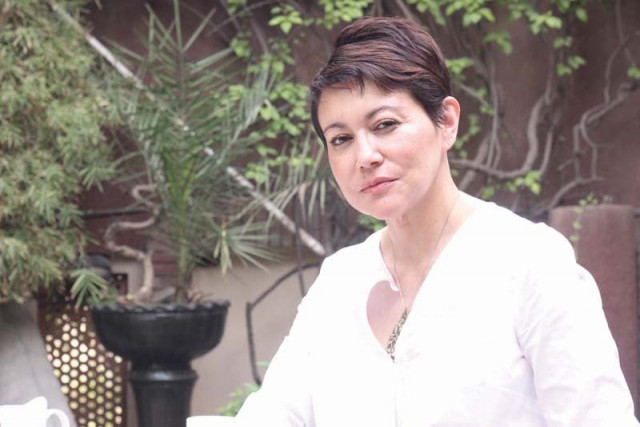Retracing the legacy of colonial rule
Misra says that the right to vote emerged from the struggle of South Asians themselves

Anne Marie-Misra is a fellow at the Keble College, Oxford. PHOTO: EXPRESS
Anna-Maria Misra is fiercely opinionated. A historian and currently a fellow at the Keble College, Oxford, Misra has two books under the belt and is currently working on another book that looks at the global history of gender. This is her first trip to Lahore, in fact, her first visit to Pakistan, yet she seems familiar with the country having studied colonial rule in the subcontinent. The familiarity seems to draw on her own connection to India, in whose modern politics she is well-versed.
Many argue that women in India received the right to vote as a result of the suffragette movement in Britain.
Misra disagrees. “The west likes to claim a lot of the credit for anything good in South Asia,” she says smiling. “I’m not deprecating colonialism here, but political rights were fought for. They weren’t handed down as a gift. Democracy arrived in South Asia as very well organised opposition movements found ways of putting pressure on the colonial state. South Asian men and women recognised the need for that right.” Misra says that the right to vote emerged from the struggle of South Asians themselves.
Among the many developments in the region the British love taking credit for, the most notable are the laying out of infrastructure and technology. The English seem to imagine that they were involved in all of the engineering and architectural developments and other processes by which the cities and the infrastructure of South Asia were built. “But many of these people were South Asians themselves,” she says. Misra argues that the required intellectual exchange would have taken place regardless of colonialism. She cites Japan as an example of an Asian countrywhere extraordinary development took place over the same period even though it wasn’t a western colony.
The process of democratisation tends to create politicisation of identity based on cultural identities, she says. “I don’t think, as a historian, one looks at remote causes of contemporary politics. I think one can look for path dependencies and I suppose the way that identities become politicised is something that can be established a long time in the past.”
She believes the British did exploit sectarian and religious differences in the subcontinent to their own advantage but adds, “So when I say South Asia wouldn’t be without railways if the British hadn’t come here, I’m not sure if South Asia would have been without a politicised religious identity without colonial rule.”
Maria says the process of democratization produces “a whole new ball game in the way people relate to one another politically.” However, she says there are more “syncretic” identities, less divided between religion and sect that are present within the subcontinent and could have become a basis for political organization without the British.
It is with this context of the subcontinent and South Asian history that Misra will discuss women rights and gender in global politics at Afkar-i-Taza, a conference starting at the Information Technology University on Friday.
In her mind, she says, gender works in relation to things like imperialism, nationalism and class hierarchies. What she finds particularly interesting about gender in South Asia is, “the way women’s rights are bound up with nationalist hostility to the west.”
Hostility towards the west often weakens the case for women’s rights despite the fact that throughout South Asia women have been in positions of power politically. The paradox is not lost on Misra. She says it was the aristocratic structure of societies that allowed these women into power. “What’s very interesting about these women including Benazir, is that having gained prominence through family and kinship connections, they are nobody’s tools. They are very well able to wield power in their own right.”
Despite the praise for women in positions of power, Misra does not think they represent empowerment of women in South Asia. She feels that the situation might be changing a bit in India where a large number of women are now chief ministers of various states.
Published in The Express Tribune, March 31st, 2016.



















COMMENTS
Comments are moderated and generally will be posted if they are on-topic and not abusive.
For more information, please see our Comments FAQ